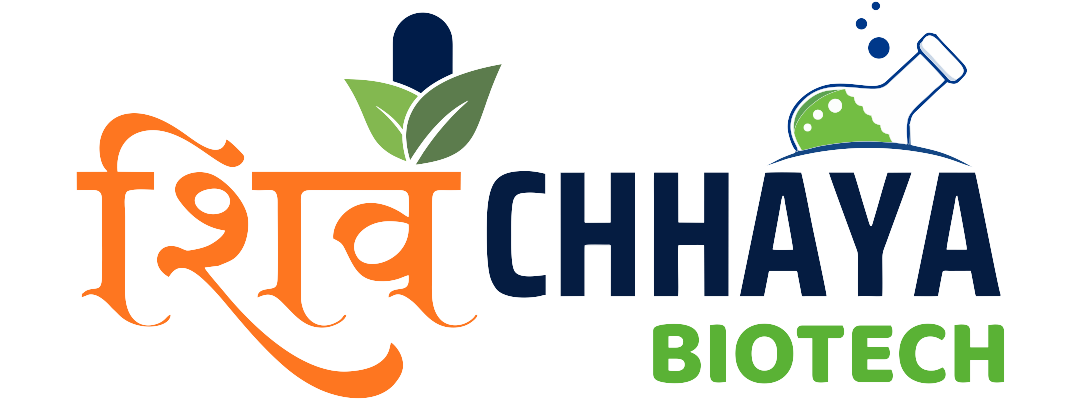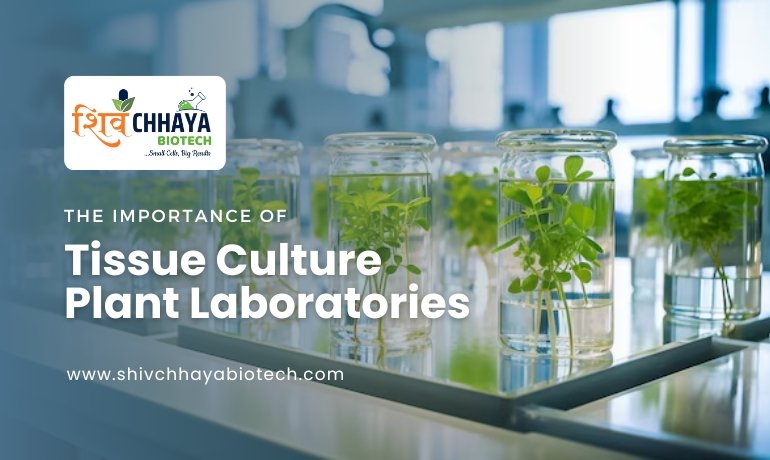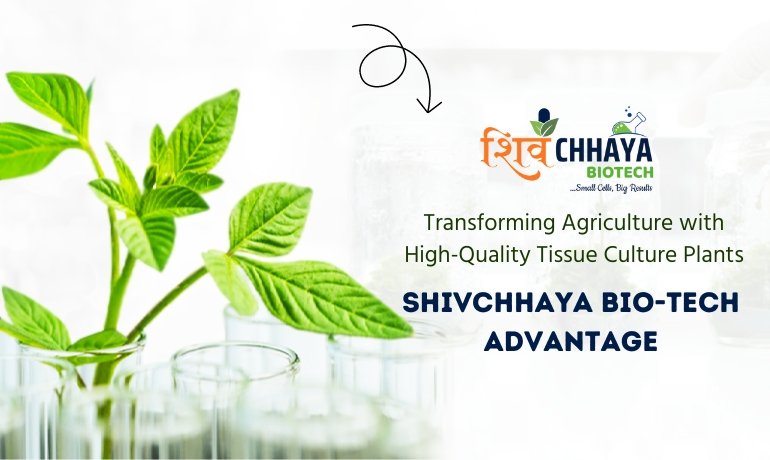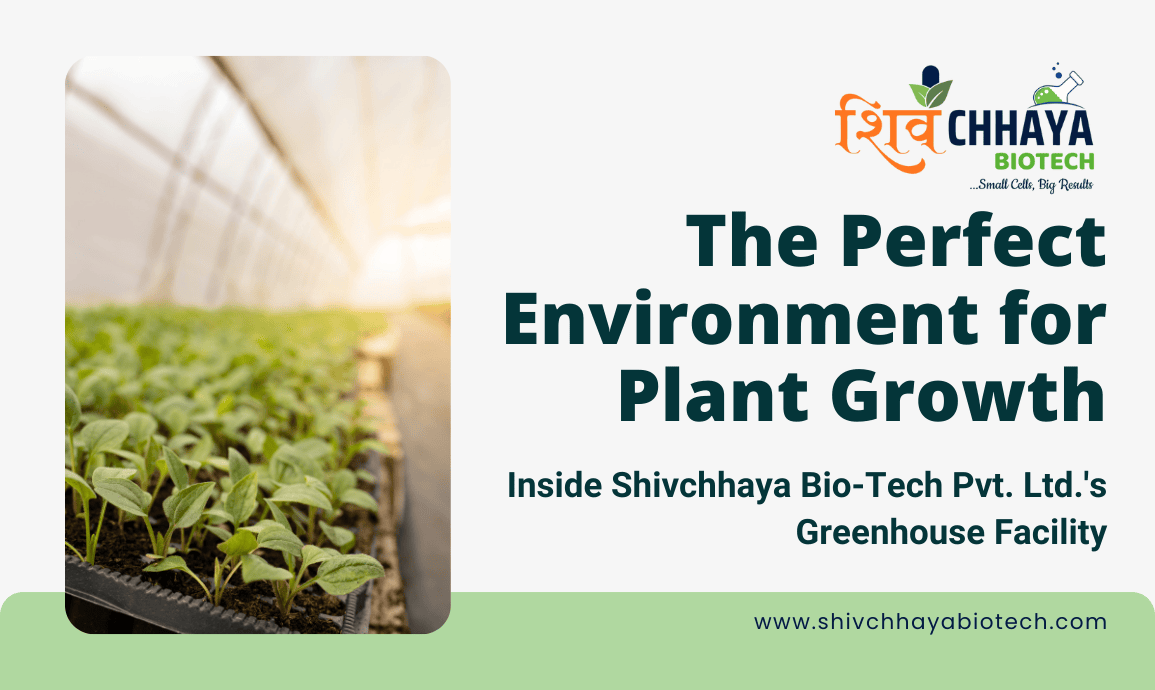In the world of agriculture and horticulture, the demand for healthy and high-quality plants is on the rise. To meet this demand, innovative techniques like tissue culture have emerged as essential tools in plant propagation and conservation. At Shivchhaya Bio-Tech Private Limited, we operate a state-of-the-art Tissue Culture Plant Laboratory, where we develop, propagate, and conserve a variety of plants, ensuring they are disease-free and genetically stable. This blog will explore the significance of tissue culture, its processes, and how our laboratory is paving the way for sustainable agriculture.
What is Tissue Culture?
Tissue culture, also known as micropropagation, is a technique used to grow plants from small tissue samples or cells in a sterile environment. This method allows for the rapid multiplication of plants, producing genetically identical clones. Tissue culture is essential for the propagation of various species, especially those that are difficult to grow from seeds or cuttings. By utilizing this technology, we can create disease-free plantlets that exhibit desirable traits, ensuring the survival of endangered species and the preservation of biodiversity.
Advantages of Tissue Culture
- Disease-Free Plants: One of the primary benefits of tissue culture is the production of disease-free plantlets. By starting with a small piece of tissue in a sterile environment, we can eliminate the risk of pests and diseases, which is crucial for the health of the plants and the ecosystems they inhabit.
- Genetic Stability: Tissue culture allows us to propagate plants with consistent and stable genetic traits. This is particularly important for commercial growers who require uniformity in their crops. Genetic stability ensures that the plants produced will have the same desirable characteristics, such as size, shape, and yield.
- Rapid Propagation: Tissue culture is a highly efficient method for plant propagation. A single tissue sample can produce thousands of plantlets in a relatively short period. This rapid multiplication is essential for meeting the increasing demands of the agricultural sector.
- Conservation of Rare and Endangered Species: Many plant species are facing extinction due to habitat loss and environmental changes. Tissue culture provides a viable solution for conserving these rare species by allowing for their propagation and restoration in their natural habitats.
- Space Efficiency: Traditional propagation methods often require significant space and resources. Tissue culture, on the other hand, can be conducted in small laboratory spaces, making it an economical choice for nurseries and agricultural businesses.
The Tissue Culture Process
At Shivchhaya Bio-Tech Private Limited, our Tissue Culture Plant Laboratory follows a systematic process to ensure the successful propagation of plants. The key steps involved include:
- Selection of Plant Material: The first step in tissue culture is selecting healthy plant material. This could be a shoot tip, leaf, or stem from the desired plant species.
- Sterilization: To prevent contamination, the selected plant material undergoes a thorough sterilization process using chemical solutions or heat treatments.
- Initiation: The sterilized plant tissue is placed in a nutrient-rich culture medium that provides the necessary vitamins, minerals, and hormones for growth.
- Multiplication: Once the tissue begins to grow, it can be subcultured to produce more plantlets. This stage involves splitting the growing tissue and placing it in fresh culture media to encourage further growth.
- Rooting: After sufficient growth, the plantlets are transferred to a rooting medium to develop a robust root system. This is a critical phase that determines the survival of the plantlets once they are transferred to soil.
- Acclimatization: Once the plantlets have developed roots, they are gradually acclimatized to external conditions. This process is vital to prepare them for transplantation into the soil or their natural habitat.
Innovations in Tissue Culture
As technology continues to advance, so do the methods employed in tissue culture. Some of the latest innovations include:
- Automated Systems: The use of robotics and automated systems in tissue culture laboratories enhances efficiency and reduces the risk of human error. Automated systems can process numerous samples at once, enhancing overall productivity.
- Genetic Modification: Advances in genetic engineering allow scientists to modify the genetic makeup of plants at the tissue culture stage, enhancing desirable traits such as disease resistance, drought tolerance, and nutritional value.
- Cryopreservation: This technique involves freezing plant tissues at extremely low temperatures, preserving them for long periods. Cryopreservation is crucial for conserving rare and endangered species.
The Future of Tissue Culture
The future of agriculture and plant conservation lies in the hands of tissue culture technologies. With the growing population and the pressing need for sustainable practices, the role of Tissue Culture Plant Laboratories like Shivchhaya Bio-Tech Private Limited becomes increasingly significant. As we continue to refine our techniques and embrace innovative methods, we remain committed to producing high-quality, disease-free plantlets that contribute to a sustainable future.
Conclusion
In summary, tissue culture is a revolutionary technique that plays a crucial role in plant propagation, conservation, and agriculture. At Shivchhaya Bio-Tech Private Limited, our Tissue Culture Plant Laboratory is dedicated to developing and propagating disease-free and genetically stable plantlets. By harnessing the power of tissue culture, we aim to support sustainable agriculture, conserve biodiversity, and contribute to a greener planet.
For more information about our services or to discuss your plant propagation needs, feel free to reach out to us.
Contact Us:
If you have any questions or would like to learn more about our tissue culture services, please don’t hesitate to contact us at Shivchhaya Bio-Tech Private Limited. You can reach us at +91 77790 21916 or via email at contact@shivchhayabiotech.com. We look forward to helping you with all your plant propagation needs!



